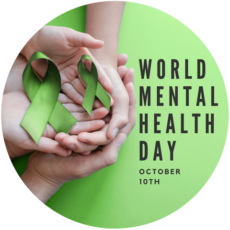

World Mental Health Day & Self-Advocacy
Every year on October 10th, the world observes World Mental Health Day, a vital reminder of the importance of mental well-being. This year’s theme emphasizes the urgency of mental health awareness, particularly in light of the rising rates of depression and anxiety across the globe.
Depression affects over 264 million people worldwide, yet many remain undiagnosed. Notably, people with disabilities are at a significantly higher risk for mental health conditions, with studies showing that they are three to four times more likely to experience depression and anxiety compared to those without disabilities. This disparity highlights the urgent need for targeted support and resources.
The stigma surrounding mental health often prevents us from seeking help. This October, let’s work together on breaking that silence. Early detection through depression screening can significantly improve outcomes for those struggling. The Patient Health Questionnaire (PHQ-9) is a widely used tool that helps identify symptoms and severity, making it an essential resource.
Effective strategies to promote mental health awareness and encourage screenings include: educating yourself and others about the signs of depression, which can include persistent sadness, loss of interest in activities, and changes in sleep or appetite.
Utilizing online resources is another powerful way to promote awareness. Websites like MentalHealth.gov and the National Alliance on Mental Illness (NAMI) provide comprehensive information on mental health conditions and access to screening tools. Additionally, telehealth services have made it easier than ever to connect with mental health professionals, removing barriers to seeking help.
Hosting community workshops or seminars can foster open discussions about mental health, creating a supportive environment.
This October, as the world observes Mental Health Day, the Utah Parent Center is joining the cause and inviting all self-advocates to a FREE, in-person workshop for individuals with intellectual and/or developmental disabilities.
After this workshop you will be able to:
– Define: What does “mental health” mean?
– Describe: Common mental health concerns and what treatment looks like
– Know: How to find trustworthy resources
– Practice: Ways to advocate for YOUR mental health!
By discussing depression openly, utilizing screening tools and leveraging available resources, we can create a world where mental well-being is valued and accessible to all, especially for individuals with disabilities.
Remember, reaching out for help is a sign of strength, not weakness. Let’s help prioritize mental health—not just on one day, but every day.






